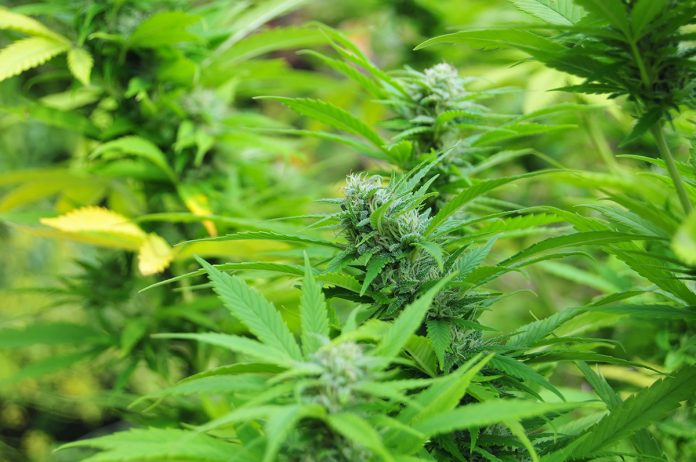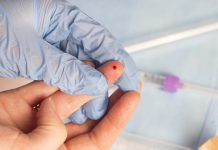Kathleen Denoodt continues to enlighten us on the subject of medical cannabis, particularly imports to Germany and the Netherlands
In the previous edition of Open Access Government last July, I told you more about the export of medical cannabis from Israel and how excited I am that this is finally happening. This article is one of several follow-ups. In this article, I will let you know about the import of medical cannabis in two different countries: Germany (one of Europe’s largest markets) and the Netherlands (one of the best medical cannabis suppliers.) Later in this series, other countries such as Canada, the UK, and Australia will follow.
Germany
So, what are the requirements for companies to import cannabis for medical purposes?
For the import of cannabis preparations (e.g. extracts) for medical purposes, companies need a permit in accordance with Section Three of the Narcotics Act (“BtMG”).
The main product-related prerequisite for the granting of narcotics permits for import, is that the cannabis intended for import or used for the production of preparations is grown in the country of origin for medical purposes under state control is in accordance with articles 23 and 28 of §1 of the single convention of 1961 on Narcotic Drugs. Evidence must be provided with the application.
In addition, the following questions must be clarified before the application is submitted, along with the relevant documents attached to the application:
Which varieties of cannabis flowers or which preparations made from cannabis should be traded? Product specifications must be submitted.
- Which country does the cannabis come from?
- From which company, from which country, and what annual maximum quantity should the cannabis flowers or preparations be obtained?
- If the necessary pharmaceutical permits have already been applied for the copies of these must be attached to the application.
- Be aware that an importer needs to provide all necessary state authorisations before an import license can be done.
- Licences under the AMG (Medicines Act) are issued by the authorities responsible under State Law.
The basic requirement under the narcotics law for trading in medical cannabis is a licence in accordance with Section three of the Narcotics Act (BtMg). In addition to this permit, an import permit in accordance with Section 11 BtMg of BfArm is required for each individual import of medical cannabis. After the necessary permit according to §3 BtMg has been received, the permit for each individual import can be applied for. The import permit necessary under the Medicinal Products Act (AMG) must be distinguished from the narcotics law permit.
The Netherlands
The import of Opium Act drugs is prohibited. Companies can apply for an import exemption from Farmatec.
The Opium Act prohibits the import of substances that fall under the regime of List I or List II of the Opium Act. Pharmaceutical companies that import drugs must apply for an exemption. For the import of an Opium Act substance, a new application must be submitted per shipment.
However, applications relating to cannabis, hemp, hashish, hemp oil, or preparations of these must be submitted to the Office for Medicinal Cannabis.
An Opium Exemption is intended for companies or organisations that wish to perform activities with the means referred to in the Opium Act.
Under certain conditions this prohibition does not apply to pharmacists, dispensing doctors, and veterinarians. In addition, the Act does not apply to institutions and persons or institutions designated by the government that have such medicines in stock for the practice of medicine, dentistry or for their own medical use (article 5 of the Opium Act- see later.)
Purpose:
The Office for Medicinal Cannabis grants an exemption for the following purposes:
- Public health.
- Animal health (subdivided into exemptions for instruction of detection dogs and other exemptions.)
- Scientific or analytical-chemical research.
- Instructional purposes.
- Trade-related purposes.
Application procedure
If the application procedure is incomplete, the requester will receive a request to complete it within six weeks.
When the application is complete, the requester will receive a confirmation of receipt and this will be submitted for advice to the Healthcare and Youth Inspectorate (IGJ). Partly on the basis of the advice of the IGJ, the Office for Medicinal Cannabis takes a decision on the application on behalf of the Minister of Health, Welfare and Sport.
Decision period
For new applications, the decision period is three months.
The Opium Act itself does not specify a decision period for the processing of change requests for opium exemptions. The decision period for change applications is therefore the reasonable period referred to in the General Administrative Law (Awb), the Office for Medicinal Cannabis has set this at 90 days.
This concerns the. Net processing time, i.e. the decision period will be suspended if the Office for Medicinal Cannabis or the IGJ cannot continue with the processing of your application due to a cause that is at the requesters expense. The decision period will start again as soon as the Office for Medicinal Cannabis or IGJ can continue processing the application. If the Office for Medicinal Cannabis does not meet the decision period, the requester will receive a letter about this.
Article Five of the Opium Act:
The prohibition on preparing, processing, selling, supplying, transporting, or having a substance as referred to in List I or List II does not apply to:
Pharmacists and dispensing doctors if they prepare, process, sell, deliver, supply, transport or have available substances designated pursuant to Article four §1, and these activities are carried out in the normal course of their professional practice. And veterinarians, if they sell, supply, transport or have available the products designated under article four for veterinary purposes.
Having this information from both countries, I have to say that import of medical-grade cannabis looks easier in the Netherlands than in Germany. No surprise because the Netherlands has a long history of using cannabis (medical-grade cannabis) as medication.
The Netherlands could be an example country at least in Europe and probably even in the world.
To be continued, the next article in this series will be Canada and the UK.
*Please note: This is a commercial profile











